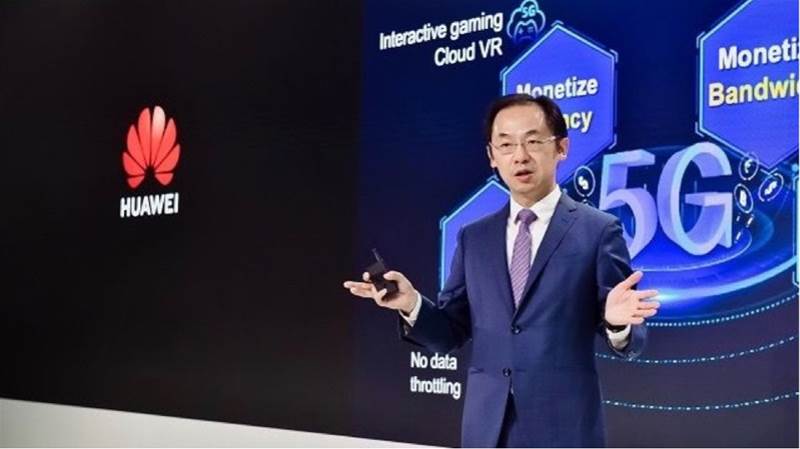The ICT infrastructure, as the cornerstone of the digital economy, is now playing an important role that will light up the future of every industry, said Ryan Ding, Huawei Executive Director and President of Carrier.
Speaking as a keynote speaker on Innovation: Lighting up the Future at Mobile World Congress 2021 in Barcelona this week, Ding said the value of ICT now transcends the telecoms industry and has transformative implications for the global economy.
In countries where 5G is developing faster, operators have seen faster revenue growth, and these countries also tend to have better digital infrastructure overall. Citing China as an example, Ding said that in less than 18 months, more than 820,000 5G base stations have been deployed.
The rapid development of digital infrastructure driven by 5G will add close to US$3 trillion to the Chinese economy in the next five years. The same stories are also unfolding in South Korea and Europe.
"Currently, the major goal of operators in 5G is to achieve business success in three key markets – consumers, homes, and industries – through innovation in network deployment, market development, and operation optimisation," Ding added.
"In the consumer market, 5G means not just faster speeds; it also brings new experiences and new value."
Huawei’s three tips for operators
According to Ding, there are three steps an operator can take to succeed in the 5GtoC market.
The first is to speed up 5G deployment, with targeted network planning and investment based on precise insights into high-value areas, key scenarios, and potential users.
The second is to accelerate 5G user migration, and the third step is to create value-driven, flexible pricing models.
Today, 5G has been applied in over 1,000 projects in more than 20 industries including steel and mining, enabling safer and more efficient production. Ding said Chinese operators have made good progress and are entering the phase of taking early successes and replicating them at scale.
"We've learned from Chinese operators' experience that the success of 5GtoB depends on three factors," said Ding. "First, selecting the right industries. Operators should choose target industries by looking at four factors: demand, affordability, replicability, and technical feasibility.
“Second, defining the scope of your offerings. Operators can serve as network providers that offer connectivity services. They can also serve as cloud service providers, or even system integrators that provide end-to-end integration services. Different roles require different skillsets and yield different business value. Third, designing innovative business models. This is key to replicating 5GtoB success at scale."
During the pandemic, there is a growing demand for home broadband, and this has highlighted the advantages of 5G Fixed Wireless Access (FWA) that enables rapid deployment and contactless operations and maintenance (O&M).
Ding said Middle East operators have achieved commercial success by taking FWA as a key use case of 5G.










